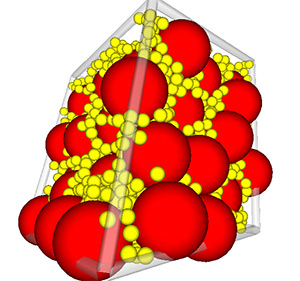Five projects win funding aimed at sparking innovation
Five inventions with the potential for societal benefit and commercial applications have been awarded support through Princeton’s Intellectual Property Accelerator Fund, which aims to help promising technologies bridge the gap between the laboratory and the marketplace.
The innovations include a secure cloud storage system, improved starting materials for 3-D printing, a technology for detecting explosives from a distance, a three-dimensional audio system for multiple listeners, and a method for coping with increasing demand in wireless networks. Each project will receive approximately $100,000.
Innovative Powders
Although 3-D printing has grown in popularity as a manufacturing technique, the technology suffers from high failure rates and slow printing speeds. A team led by Salvatore Torquato, professor of chemistry and the Princeton Institute for the Science and Technology of Materials, has developed high-quality powdered starting materials that could lead to improved reliability and faster printing.

Image courtesy of Salvatore Torquato
Also known as additive manufacturing, 3-D printing involves depositing thin layers of a material — in many cases, a powder — on a surface, and then applying heat to fuse the powder particles together. Torquato and his team are creating disordered powders that are much denser and less porous than existing powders, and thus easier to fuse. The use of low-porosity powders can boost printing speeds up to tenfold and reduce the required energy by a third.
The technology for producing low-porosity powders is applicable to metals, ceramics, cement and glass. The project, “Granular Composite Density Enhancement Ultra Low-Porosity Powders for Industrial Additive Manufacturing,” will be conducted with co-inventor Adam Hopkins, who earned his Ph.D. in chemistry at Princeton in 2012 and his Bachelor of Arts in physics in 2005, and is now the CEO of a startup company called Uniformity Labs.
Read more on the Princeton University Homepage
